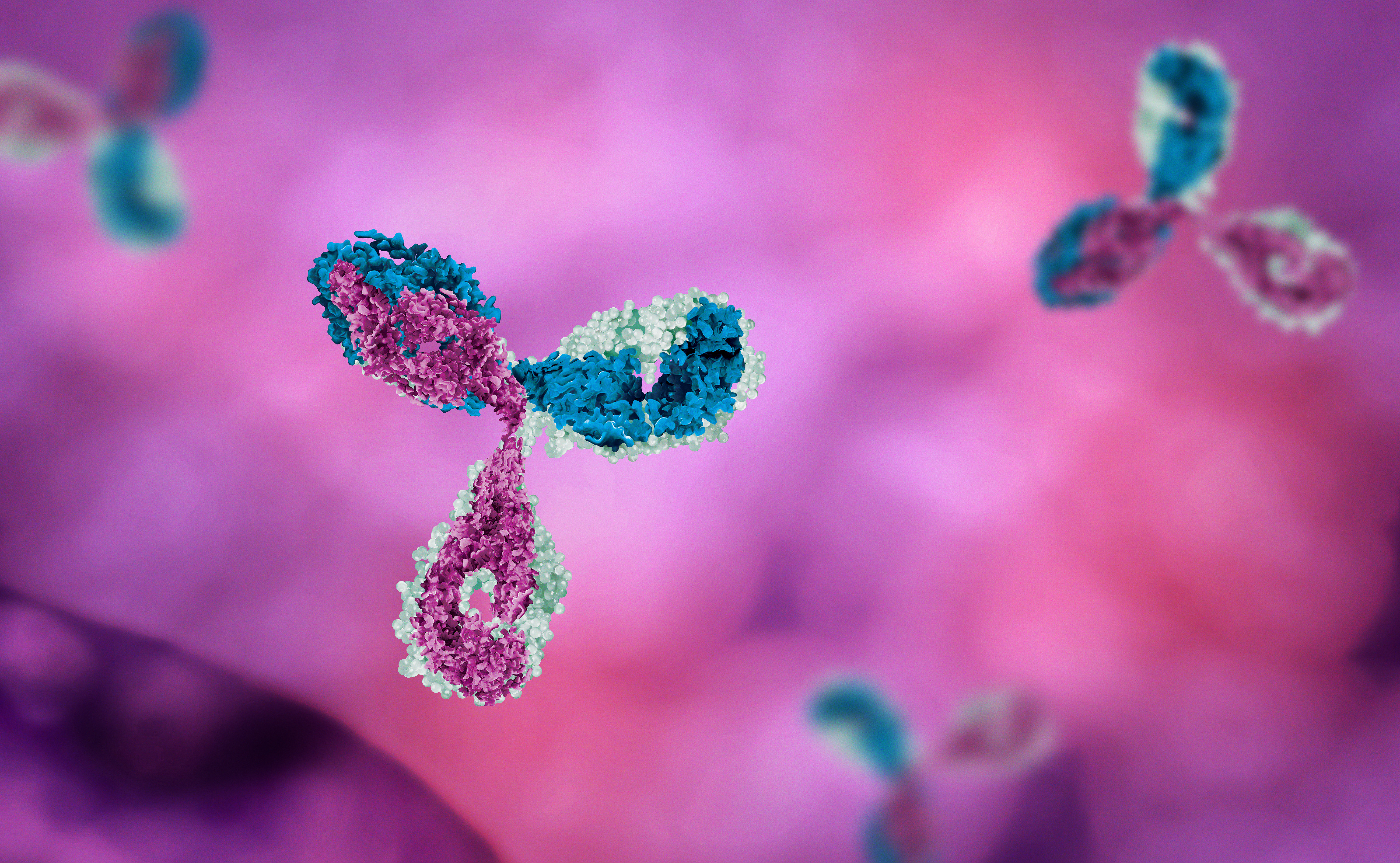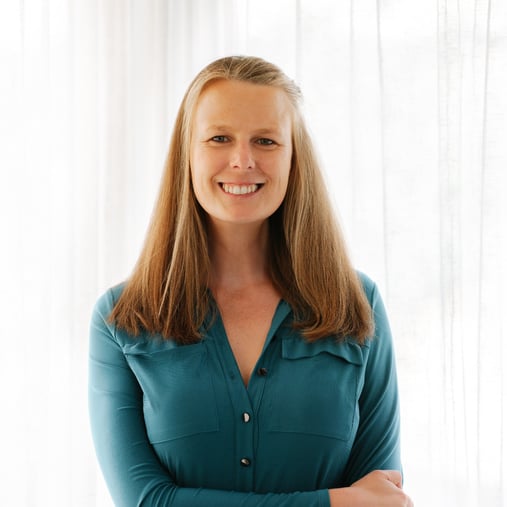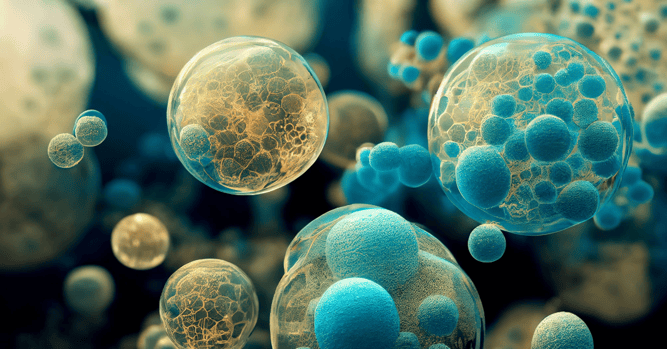
Menstrual effluent contains a wealth of scientific info, including biomarkers for endometriosis, diabetes, certain cancers and polycystic ovary syndrome. Yoni Health is the first start-up in this field.
Forward: features are independent pieces written for Mewburn Ellis discussing and celebrating the best of innovation and exploration from the scientific and entrepreneurial worlds.
When Karli Büchling was at university she was quite unwell and required blood tests each and every week to monitor her health. One week, she happened to be on her period and inquired whether the nurse could use her period blood to conduct the test, rather than blood from her veins. The nurse simply laughed and said, ‘Don’t be silly.’ This stayed with the founder for many years after.
Karli went on to invent the first pregnancy pillow that allowed women to sleep on their fronts – something that went against conventional wisdom about what was safe for pregnant women to do. ‘It highlighted the complete lack of proper research into female physiology and transparency around the research that is out there,’ Karli says.
Years later, on a female founder WhatsApp thread, a discussion about the invasive nature of smear tests was playing out. Karli questioned again why doctors couldn’t use period blood to gather the cells necessary to perform the test. With attitudes towards periods slowly changing, she felt now was the time to take this idea further and challenge the way things are traditionally done.
She did some research and found a US study suggesting the use of a period sample would produce the same results. ‘The more I looked into menstrual blood, the more things I found that it could potentially be used for,’ recalls Karli. ‘Periods aren’t simply a sign of the absence of pregnancy; they are an abundant source of bioinformation and data that are flushed down the drain.’

Karli Büchling, Founder & CEO of Yoni Health
In fact, Karli found that menstrual effluent, part of a woman’s period, contains endometrial tissue with viable cells, immune cells, nucleic acids, proteins, and microorganisms from the vaginal microbiome. ‘This means that period blood has many live cells within it, as well as more than 800 unique proteins and special immune cells that are not found in systemic blood,’ she adds.
She spoke to more researchers and heard that part of the problem for scientists is a lack of samples to examine caused by gender bias. People were struggling to navigate the ethical and regulatory landscape to launch period blood studies. The will was there but the structures weren’t. ‘I did more research, asking women if collecting their period blood was something they were willing to do and 90% said they would be up for donating their periods to science,’ Karli explains. ‘This might not have been the case 30 years ago when there was a lot more stigmatisation, but the younger generations are more open and unashamed.’
Karli knew that to have an impact in this area she would need to partner with lots of different businesses and researchers, all of which would need samples. That’s how she came up with the idea of a menstrual blood bank. Yoni Health launched in April 2023 and intends to launch Europe’s first menstrual blood bank in January 2025.
Its first partnership is with the University of Manchester and samples will be held at its biobank. Karli is also in conversation with the UK Biobank (also in Manchester) and the University of Warwick for a potential partnership once the initial university project comes to an end.
The company is currently developing the world’s first at-home menstrual blood donation kits so women can send samples from the comfort of their own homes. To ensure it has a pipeline of samples once the kits are ready, the company is developing its own community of women, via Yoni Health’s website and social media pages, who have signed up to a wait list to donate when the kit is ready. It is also working on a period-tracking app, which will allow women to track their periods and receive a notification when it’s coming up to their time to donate, as well as invites to other research projects they might want to get involved in.
Already thinking ahead, Yoni Health is working with Mewburn Ellis to identify and protect its intellectual property (IP). At the moment, this is focused around the kits – protecting their designs for the kit, the formula used for preservation and the method of transportation to the lab. As Yoni Health develops its app and its unique functionality, this will also become a patented part of the offering. The research that emerges from the blood bank will also become shared IP with any partners helping to bring it to the fore.

Microorganisms: menstrual effluent, part of a woman’s period, contains endometrial tissue with microorganisms from the vaginal microbiome
‘Protecting our IP is extremely important,’ explains Karli. ‘Not only will we need to document our IP protection strategy to any investors, but I also want to make sure the key information doesn’t fall into the wrong hands. I want this to benefit the right people rather than becoming money-making fodder for people who don’t care about impact.’,
Once it has the samples required, the team has a long list of diagnostic areas they want to dive into. They’ll start by analysing the samples to create a baseline for what a healthy period looks like. Then they will compare it with samples from people who have known conditions.
‘We know there are biomarkers to detect endometriosis, diabetes, certain cancers and polycystic ovary syndrome,’ Karli explains. ‘There are also known suggestions that menstrual blood can be used to alleviate Alzheimer’s disease and I’m already partnering with a company called Evelyn Health to look for biomarkers for premenstrual dysphoric disorder (PMDD), which is currently seen as a mental health issue. Dr Olga Tsigkou, our researcher in Manchester, has also done work on using stem cells found in menstrual blood to improve the IVF process.’
More long-term, Karli also wants to track women’s periods from adolescence right through to fertility and menopause to see what early signs can be seen and what patterns discovered. ‘Ultimately, I want the company to become the vehicle that enables businesses and researchers to include women in their product development and research activities,’ she says.
The biggest challenge so far, according to the entrepreneur, has been the lack of funding options available to them. The company is currently applying for an Innovate UK grant, but Karli says there are only a couple that apply to them. ‘There aren’t any specific grants for women’s health,’ she explains. ‘There was a grant created as part of the Women’s Health Strategy but that was only for charities. Then it seems the grants that target female founders are smaller than those for male founders.’
In many ways, this is a tale as old as time and one that has created the sizable gender health gap that companies such as Yoni Health are trying to eradicate. ‘The average time it takes to diagnose women is four years longer than men across more than 70 diseases,’ says Karli. ‘Women were completely excluded from clinical research for over 450 years. It wasn’t until 1993 that women were allowed to partake in trials. All the research that came before that was done on the male physiology, not taking into account our differences at a cellular level. As a community, we’ve got a lot of work to do to counteract this and we will only truly see the change through collaboration.’
Real hope of progress against the gender health gap
Fran Salisbury, Partner, Patent Attorney, and Women's Champion at Mewburn Ellis, comments:
It's fascinating that menstrual blood has such a wide range of potential applications, and yet has been overlooked for so long. The work that Karli is doing provides an ingenious way to change this. By bringing samples together into a blood bank, Yoni Health will make transform what many regard as waste products into a powerful resource for researchers. It offers real hope of progress against the gender health gap. I'm really excited to see how this progresses!
Written by Gabriella Griffith
Fran is a Partner and Patent Attorney at Mewburn Ellis. She works in all patent cycle stages within the life sciences sector – from invention capture, drafting and patent strategy to prosecution and global portfolio management. Fran is a member of our plant variety rights team, having completed the official WIPO course on plant variety protection under the UPOV convention. As such, she has extensive experience dealing with plant-related inventions, including obtaining plant variety rights and entry onto the national list and common catalogue.
Sign up to our newsletter: Forward - news, insights and features
Our people
Our IP specialists work at all stage of the IP life cycle and provide strategic advice about patent, trade mark and registered designs, as well as any IP-related disputes and legal and commercial requirements.
Our peopleContact Us
We have an easily-accessible office in central London, as well as a number of regional offices throughout the UK and an office in Munich, Germany. We’d love to hear from you, so please get in touch.
Get in touch

